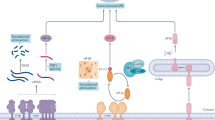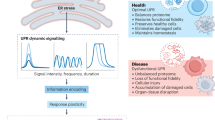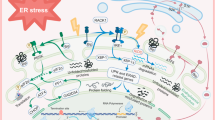Abstract
Huntington's disease (HD) is a progressive, neurodegenerative disease with fatal outcome. Although the disease-causing gene (huntingtin) has been known for some time, the exact cause of neuronal cell death is still unknown. One potential mechanism contributing to the massive loss of neurons in the brain of HD patients might be the unfolded protein response (UPR), which is activated by accumulation of misfolded proteins in the endoplasmatic reticulum (ER). As an adaptive response to counter-balance accumulation of un- or misfolded proteins, the UPR upregulates transcription of chaperones, temporarily attenuates new translation, and activates protein degradation via the proteasome. However, it is known that persistent ER stress and activated UPR can cause cell death by triggering of apoptosis. Nevertheless, the evidence linking UPR with HD progression remains inconclusive. Here, we present first analyses of UPR activation during HD based on available expression data. To elucidate the potential role of UPR as a disease-relevant process, we examine its connection to cell death and inflammatory processes. Due to the complexity of these molecular mechanisms, a systems biology approach was pursued.
Similar content being viewed by others
Article PDF
Author information
Authors and Affiliations
Corresponding author
Rights and permissions
About this article
Cite this article
Kalathur, R., Ayasolla, K. & Futschik, M. The Unfolded Protein Response and its potential role in Huntington's disease. Nat Prec (2012). https://doi.org/10.1038/npre.2012.7145.1
Received:
Accepted:
Published:
DOI: https://doi.org/10.1038/npre.2012.7145.1



